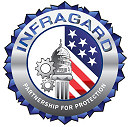NH RSA:627 Criminal Code
TITLE LXII
CRIMINAL CODE
CHAPTER 627
JUSTIFICATION
Section 627:1
627:1 General Rule. – Conduct which is justifiable under this chapter constitutes a defense to any offense. The fact that such conduct is justifiable shall constitute a complete defense to any civil action based on such conduct.
Source. 1971, 518:1. 1979, 429:2, eff. Aug. 22, 1979.
Section 627:1-a
627:1-a Civil Immunity. – A person who uses force in self-protection or in the protection of other persons pursuant to RSA 627:4, in the protection of premises and property pursuant to RSA 627:7 and 627:8, in law enforcement pursuant to RSA 627:5, or in the care or welfare of a minor pursuant to RSA 627:6, is justified in using such force and shall be immune from civil liability for personal injuries sustained by a perpetrator which were caused by the acts or omissions of the person as a result of the use of force. In a civil action initiated by or on behalf of a perpetrator against the person, the court shall award the person reasonable attorney's fees, and costs, including but not limited to, expert witness fees, court costs, and compensation for loss of income.
Source. 2011, 268:3, eff. Nov. 13, 2011.
Section 627:2
627:2 Public Duty. –
I. Any conduct, other than the use of physical force under circumstances specifically dealt with in other sections of this chapter, is justifiable when it is authorized by law, including laws defining functions of public servants or the assistance to be rendered public servants in the performance of their duties; laws governing the execution of legal process or of military duty; and judgments or orders of courts or other tribunals.
II. The justification afforded by this section to public servants is not precluded by the fact that the law, order or process was defective provided it appeared valid on its face or, as to persons assisting public servants, by the fact that the public servant to whom assistance was rendered exceeded his legal authority or that there was a defect of jurisdiction in the legal process or decree of the court or tribunal, provided the actor believed the public servant to be engaged in the performance of his duties or that the legal process or court decree was competent.
Source. 1971, 518:1, eff. Nov. 1, 1973.
Section 627:3
627:3 Competing Harms. –
I. Conduct which the actor believes to be necessary to avoid harm to himself or another is justifiable if the desirability and urgency of avoiding such harm outweigh, according to ordinary standards of reasonableness, the harm sought to be prevented by the statute defining the offense charged. The desirability and urgency of such conduct may not rest upon considerations pertaining to the morality and advisability of such statute, either in its general or particular application.
II. When the actor was reckless or negligent in bringing about the circumstances requiring a choice of harms or in appraising the necessity of his conduct, the justification provided in paragraph I does not apply in a prosecution for any offense for which recklessness or negligence, as the case may be, suffices to establish criminal liability.
Source. 1971, 518:1, eff. Nov. 1, 1973.
Section 627:4
627:4 Physical Force in Defense of a Person. –
I. A person is justified in using non-deadly force upon another person in order to defend himself or a third person from what he reasonably believes to be the imminent use of unlawful, non-deadly force by such other person, and he may use a degree of such force which he reasonably believes to be necessary for such purpose. However, such force is not justifiable if:
(a) With a purpose to cause physical harm to another person, he provoked the use of unlawful, non-deadly force by such other person; or
(b) He was the initial aggressor, unless after such aggression he withdraws from the encounter and effectively communicates to such other person his intent to do so, but the latter notwithstanding continues the use or threat of unlawful, non-deadly force; or
(c) The force involved was the product of a combat by agreement not authorized by law.
II. A person is justified in using deadly force upon another person when he reasonably believes that such other person:
(a) Is about to use unlawful, deadly force against the actor or a third person;
(b) Is likely to use any unlawful force against a person present while committing or attempting to commit a burglary;
(c) Is committing or about to commit kidnapping or a forcible sex offense; or
(d) Is likely to use any unlawful force in the commission of a felony against the actor within such actor's dwelling or its curtilage.
II-a. A person who responds to a threat which would be considered by a reasonable person as likely to cause serious bodily injury or death to the person or to another by displaying a firearm or other means of self-defense with the intent to warn away the person making the threat shall not have committed a criminal act.
III. A person is not justified in using deadly force on another to defend himself or herself or a third person from deadly force by the other if he or she knows that he or she and the third person can, with complete safety:
(a) Retreat from the encounter, except that he or she is not required to retreat if he or she is within his or her dwelling, its curtilage, or anywhere he or she has a right to be, and was not the initial aggressor; or
(b) Surrender property to a person asserting a claim of right thereto; or
(c) Comply with a demand that he or she abstain from performing an act which he or she is not obliged to perform; nor is the use of deadly force justifiable when, with the purpose of causing death or serious bodily harm, the person has provoked the use of force against himself or herself in the same encounter; or
(d) If he or she is a law enforcement officer or a private person assisting the officer at the officer's direction and was acting pursuant to RSA 627:5, the person need not retreat.
Source. 1971, 518:1. 1981, 347:1, 2, eff. Aug. 16, 1981. 2010, 361:1, eff. Jan. 1, 2011. 2011, 268:1, eff. Nov. 13, 2011.
Section 627:5
627:5 Physical Force in Law Enforcement. –
I. A law enforcement officer is justified in using non-deadly force upon another person when and to the extent that he reasonably believes it necessary to effect an arrest or detention or to prevent the escape from custody of an arrested or detained person, unless he knows that the arrest or detention is illegal, or to defend himself or a third person from what he reasonably believes to be the imminent use of non-deadly force encountered while attempting to effect such an arrest or detention or while seeking to prevent such an escape.
II. A law enforcement officer is justified in using deadly force only when he reasonably believes such force is necessary:
(a) To defend himself or a third person from what he reasonably believes is the imminent use of deadly force; or
(b) To effect an arrest or prevent the escape from custody of a person whom he reasonably believes:
(1) Has committed or is committing a felony involving the use of force or violence, is using a deadly weapon in attempting to escape, or otherwise indicates that he is likely to seriously endanger human life or inflict serious bodily injury unless apprehended without delay; and
(2) He had made reasonable efforts to advise the person that he is a law enforcement officer attempting to effect an arrest and has reasonable grounds to believe that the person is aware of these facts.
(c) Nothing in this paragraph constitutes justification for conduct by a law enforcement officer amounting to an offense against innocent persons whom he is not seeking to arrest or retain in custody.
III. A private person who has been directed by a law enforcement officer to assist him in effecting an arrest or preventing an escape from custody is justified in using:
(a) Non-deadly force when and to the extent that he reasonably believes such to be necessary to carry out the officer's direction, unless he believes the arrest is illegal; or
(b) Deadly force only when he reasonably believes such to be necessary to defend himself or a third person from what he reasonably believes to be the imminent use of deadly force, or when the law enforcement officer directs him to use deadly force and he believes such officer himself is authorized to use deadly force under the circumstances.
IV. A private person acting on his own is justified in using non-deadly force upon another when and to the extent that he reasonably believes it necessary to arrest or prevent the escape from custody of such other whom he reasonably believes to have committed a felony and who in fact has committed that felony: but he is justified in using deadly force for such purpose only when he reasonably believes it necessary to defend himself or a third person from what he reasonably believes to be the imminent use of deadly force.
V. A guard or law enforcement officer in a facility where persons are confined pursuant to an order of the court or as a result of an arrest is justified in using deadly force when he reasonably believes such force is necessary to prevent the escape of any person who is charged with, or convicted of, a felony, or who is committing the felony of escape from official custody as defined in RSA 642:6. The use of non-deadly force by such guards and officers is justified when and to the extent the person effecting the arrest believes it reasonably necessary to prevent any other escape from the facility.
VI. A reasonable belief that another has committed an offense means such belief in facts or circumstances which, if true, would in law constitute an offense by such person. If the facts and circumstances reasonably believed would not constitute an offense, an erroneous though reasonable belief that the law is otherwise does not make justifiable the use of force to make an arrest or prevent an escape.
VII. Use of force that is not justifiable under this section in effecting an arrest does not render illegal an arrest that is otherwise legal and the use of such unjustifiable force does not render inadmissible anything seized incident to a legal arrest.
VIII. Deadly force shall be deemed reasonably necessary under this section whenever the arresting law enforcement officer reasonably believes that the arrest is lawful and there is apparently no other possible means of effecting the arrest.
Source. 1971, 518:1. 1981, 373:1-3, eff. Aug. 22, 1981.
Section 627:6
627:6 Physical Force by Persons With Special Responsibilities. –
I. A parent, guardian or other person responsible for the general care and welfare of a minor is justified in using force against such minor when and to the extent that he reasonably believes it necessary to prevent or punish such minor's misconduct.
II. (a) A teacher or person otherwise entrusted with the care or supervision of a minor for special purposes is justified on the premises in using necessary force against any such minor, when the minor creates a disturbance, or refuses to leave the premises or when it is necessary for the maintenance of discipline.
(b) In a child care program licensed or exempt from licensure under RSA 170-E, necessary force shall be limited to the minimum physical contact necessary to protect the child, other children present, the staff, or the general public from harm.
III. A person responsible for the general care and supervision of an incompetent person is justified in using force for the purpose of safeguarding his welfare, or, when such incompetent person is in an institution for his care and custody, for the maintenance of reasonable discipline in such institution.
IV. The justification extended in paragraphs I, II, and III does not apply to the malicious or reckless use of force that creates a risk of death, serious bodily injury, or substantial pain.
V. A person authorized by law to maintain decorum or safety in a vessel, aircraft, vehicle, train or other carrier, or in a place where others are assembled may use non-deadly force when and to the extent that he reasonably believes it necessary for such purposes, but he may use deadly force only when he reasonably believes it necessary to prevent death or serious bodily injury.
VI. A person acting under a reasonable belief that another person is about to commit suicide or to inflict serious bodily injury upon himself may use a degree of force on such person as he reasonably believes to be necessary to thwart such a result.
VII. A licensed physician, or a person acting under his or her direction, or an advanced practice registered nurse (APRN) working for the department of corrections may use force for the purpose of administering a recognized form of treatment which he or she reasonably believes will tend to promote the physical or mental health of the patient, provided such treatment is administered:
(a) With consent of the patient or, if the patient is a minor or incompetent person, with the consent of the person entrusted with his care and supervision; or
(b) In an emergency when the physician or the advanced practice registered nurse (APRN) reasonably believes that no one competent to consent can be consulted and that a reasonable person concerned for the welfare of the patient would consent.
Source. 1971, 518:1. 2000, 225:1. 2002, 112:1, eff. July 2, 2002. 2009, 54:4, 5, eff. July 21, 2009.
Section 627:7
627:7 Use of Force in Defense of Premises. – A person in possession or control of premises or a person who is licensed or privileged to be thereon is justified in using non-deadly force upon another when and to the extent that he reasonably believes it necessary to prevent or terminate the commission of a criminal trespass by such other in or upon such premises, but he may use deadly force under such circumstances only in defense of a person as prescribed in RSA 627:4 or when he reasonably believes it necessary to prevent an attempt by the trespasser to commit arson.
Source. 1971, 518:1, eff. Nov. 1, 1973.
Section 627:8
627:8 Use of Force in Property Offenses. – A person is justified in using force upon another when and to the extent that he reasonably believes it necessary to prevent what is or reasonably appears to be an unlawful taking of his property, or criminal mischief, or to retake his property immediately following its taking; but he may use deadly force under such circumstances only in defense of a person as prescribed in RSA 627:4.
Source. 1971, 518:1, eff. Nov. 1, 1973.
Section 627:8-a
627:8-a Use of Force by Merchants. –
I. A merchant, or his or her agent, is justified in detaining any person who he or she has reasonable grounds to believe has committed the offense of willful concealment, as defined by RSA 637:3-a, on his or her premises as long as necessary to surrender the person to a peace officer, provided such detention is conducted in a reasonable manner.
II. A motion picture theater owner, or his or her agent, is justified in detaining any person who he or she has reasonable grounds to believe has committed the offense of unauthorized recording in a motion picture theater on his or her premises, as defined by RSA 644:19, as long as necessary to surrender the person to a peace officer, provided such detention is conducted in a reasonable manner.
III. Notwithstanding RSA 594:10, a peace officer may arrest a person who has been detained pursuant to this section, without a warrant, if the peace officer has probable cause to believe that the person has committed the offense of willful concealment and if the merchant or his or her agent witnessed the offense or if the unlawfully obtained goods or merchandise of the store were recovered from the person.
Source. 1981, 344:2. 2005, 70:1, eff. Jan. 1, 2006. 2009, 209:8, eff. Jan. 1, 2010. 2012, 205:1, eff. Jan. 1, 2013.
Section 627:8-b
627:8-b Detention Powers of County Fair Security Guards. –
I. Any county fair security guard who meets the requirements of paragraph II shall have the power to detain any person who he has reasonable grounds to believe has committed any offense under the laws of the state, on the premises of the county fair association as long as necessary to surrender the person to a peace officer, provided such detention is accomplished in a reasonable manner.
II. Only security guards who have completed a program of police training for part-time police officers, meeting standards established by the New Hampshire police standards and training council pursuant to RSA 188-F:26 and appropriate to a security guard's exercise of limited police powers, shall have the powers of detention granted in paragraph I.
Source. 1987, 85:1, eff. May 6, 1987.
Section 627:9
627:9 Definitions. – As used in this chapter:
I. "Curtilage'' means those outbuildings which are proximately, directly and intimately connected with a dwelling, together with all the land or grounds surrounding the dwelling such as are necessary, convenient, and habitually used for domestic purposes.
II. "Deadly force'' means any assault or confinement which the actor commits with the purpose of causing or which he knows to create a substantial risk of causing death or serious bodily injury. Purposely firing a firearm capable of causing serious bodily injury or death in the direction of another person or at a vehicle in which another is believed to be constitutes deadly force.
III. "Dwelling'' means any building, structure, vehicle, boat or other place adapted for overnight accommodation of persons, or sections of any place similarly adapted. It is immaterial whether a person is actually present.
IV. "Non-deadly force'' means any assault or confinement which does not constitute deadly force. The act of producing or displaying a weapon shall constitute non-deadly force.
Source. 1971, 518:1. 1981, 347:3, eff. Aug. 16, 1981. 2011, 268:4, eff. Nov. 13, 2011.


























